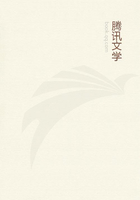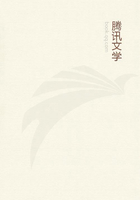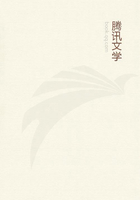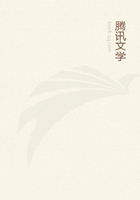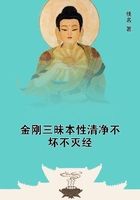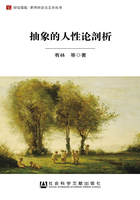In accordance with the medieval temper, the victory of the Christian and the final reconciliation among the combatants was attended by the baptism of the defeated Islamites, and the Improvisatori, who preceded Pulci in the treatment of these subjects, must have made free use of this stock incident.It was Pulci's object to parody his predecessors, particularly the worst among them, and this he does by the invocations of God, Christ, and the Madonna, with which each canto begins; and still more clearly by the sudden conversions and baptisms, the utter senselessness of which must have struck every reader or hearer.This ridicule leads him further to the confession of his faith in the relative goodness of all religions, which faith, notwithstanding his profession of orthodoxy, rests on an essentially theistic basis.In another point, too, he departs widely from mediaeval conceptions.The alternatives in past centuries were: Christian, or else Pagan and Mohammedan; orthodox believer or heretic.Pulci draws a picture of the Giant Margutte who, disregarding each and every religion, jovially confesses to every form of vice and sensuality, and only reserves to himself the merit of having never broken faith.Perhaps the poet intended to make something of this--in his way--honest monster, possibly to have led him into virtuous paths by Morgante, but he soon got tired of his own creation, and in the next canto brought him to a comic end.Margutte has been brought forward as a proof of Pulci's frivolity; but he is needed to complete the picture of the poetry of the fifteenth century.It was natural that it should somewhere present in grotesque proportions the figure of an untamed egotism, insensible to all established rule, and yet with a remnant of honorable feeling left.In other poems sentiments are put into the mouths of giants, fiends, infidels, and Mohammedans which no Christian knight would venture to utter.
Antiquity exercised an influence of another kind than that of Islam, and this not through its religion, which was but too much like the Catholicism of this period, but through its philosophy.Ancient literature, now respected as something incomparable, is full of the victory of philosophy over religious tradition.An endless number of systems and fragments of systems were suddenly presented to the Italian mind, not as curiosities or even as heresies, but almost with the authority of dogmas, which had now to be reconciled rather than discriminated.In nearly all these various opinions and doctrines a certain kind of belief in God was implied; but taken altogether they formed a marked contrast to the Christian faith in a Divine government of the world.And there was one central question, which mediaeval theology had striven in vain to solve, and which now urgently demanded an answer from the wisdom of the ancients, namely, the relation of Providence to the freedom or necessity of the human will.To write the history of this question even superficially from the fourteenth century onwards, would require a whole volume.A few hints must here suffice.
If we take Dante and his contemporaries as evidence, we shall find that ancient philosophy first came into contact with Italian life in the form which offered the most marked contrast to Christianity, that is to say, Epicureanism.The writings of Epicurus were no longer preserved, and even at the close of the classical age a more or less one-sided conception had been formed of his philosophy.Nevertheless, that phase of Epicureanism which can be studied in Lucretius, and especially in Cicero, is quite sufficient to make men familiar with a godless universe.To what extent his teaching was actually understood, and whether the name of the problematic Greek sage was not rather a catchword for the multitude, it is hard to say.It is probable that the Dominican Inquisition used it against men who could not be reached by a more definite accusation.In the case of sceptics born before the time was ripe, whom it was yet hard to convict of positive heretical utterances, a moderate degree of luxurious living may have sufficed to provoke the charge.The word is used in this conventional sense by Giovanni Villani, when he explains the Florentine fires of 1115 and 1117 as a Divine judgement on heresies, among others, 'on the luxurious and gluttonous sect of Epicureans.' The same writer says of Manfred, 'His life was Epicurean, since he believed neither in God, nor in the Saints, but only in bodily pleasure.'
Dante speaks still more clearly in the ninth and tenth cantos of the 'Inferno.' That terrible fiery field covered with half-opened tombs, from which issued cries of hopeless agony, was peopled by the two great classes of those whom the Church had vanquished or expelled in the thirteenth century.The one were heretics who opposed the Church by deliberately spreading false doctrine; the other were Epicureans, and their sin against the Church lay in their general disposition, which was summed up in the belief that the soul dies with the body.The Church was well aware that this one doctrine, if it gained ground, must be more ruinous to her authority than all the teachings of the Manichaeans and Paterines, since it took away all reason for her interference in the affairs of men after death.That the means which she used in her struggles were precisely what had driven the most gifted natures to unbelief and despair was what she naturally would not herself admit.

